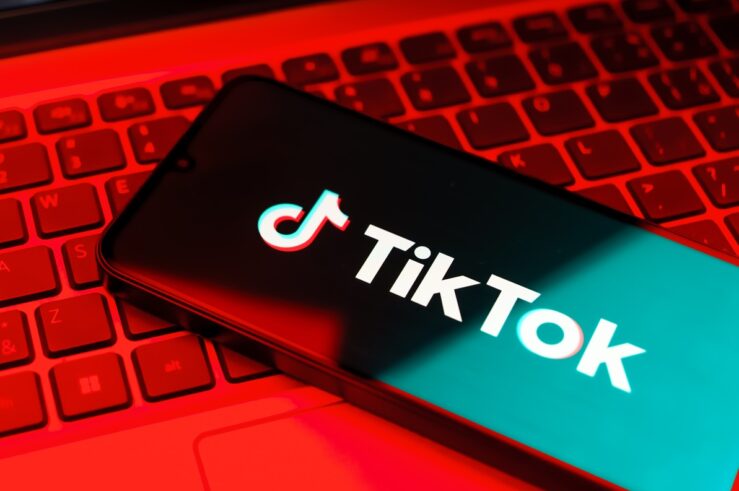
The Korea Fair Trade Commission (KFTC), the nation’s competition authority, announced Sept. 9 that it had abandoned plans for comprehensive platform regulation modeled after the European Union’s Digital Markets Act (DMA) or Section 19a of Germany’s Competition Act. The proposed Korean regulation would have involved an ex-ante designation process, alongside stringent prohibitions. The KFTC noted that it would instead pursue amendments to Korea’s competition law, the Monopoly Regulation and Fair Trade Act (MRFTA), to better address platform-related issues within the traditional competition-law framework.
According to the KFTC’s press release, the commission intends to introduce legal presumptions of dominance for platforms across six categories: online intermediaries, search engines, digital content services (e.g., video platforms), social networks, operating systems (OS), and online advertising. These presumptions will apply to platforms that exceed specific thresholds—such as a 60% market share and 10 million users, or a combined market share among two or three companies that exceeds 85%, with each having more than 20 million users—with exceptions granted for companies with annual turnover of less than 4 trillion South Korean won (approximately $3 billion). In the context of the Korean market, these thresholds are likely to capture four or five companies: Google, Apple, Kakao, Naver, and possibly either Microsoft or Meta.
The KFTC also intends to establish a prima facie rule for anti-competitive practices, including self-preferencing, tying, restrictions on multi-homing, and imposing most-favored-nation (MFN) clauses, all of which will be subject to rebuttal by demonstrating a lack of anti-competitive effects or certain other justifications, such as for security reasons. Additionally, the proposal would introduce interim orders and an increase in the cap on fines from 6% to 8% of relevant turnover.
More Than Just a Policy Shift
To some, this may seem like a simple update—one more country deciding not to adopt the EU’s DMA-style approach. The path the KFTC took to reach this point, however, was far more dynamic, resembling a rollercoaster ride. In fact, this announcement marks the agency’s third legislative attempt at platform regulation, following the proposed Online Platform Fairness Act (officially, the “Act on the Fairness of Online Platform Intermediary Transactions Act”) and the Platform Competition Promotion Act. Some might even call it the fourth attempt, given that the government initially shelved a 2023 proposal in February, only to revive it in May.
Korea’s winding path toward (non)regulation offers valuable lessons for other countries still debating whether to introduce or hold off on platform regulation. Simply put, Korea’s experience underscores the fundamental need for governments to carefully take market conditions into account and to proceed cautiously when considering sector-specific regulation, rather than simply following “global regulatory trends,” which themselves remain highly contestable. It also highlights the importance of securing broad social consensus and sufficient support before moving forward with regulation, ensuring that the process is gradual and measured—an essential aspect of modern governance.
In this post, I will explore key highlights that led to the KFTC’s latest announcement and its decision to return to its original mandate, and discuss the lessons that can be drawn from each.
KFTC’s First Regulatory Initiative in 2020
The Korean government’s legislative efforts to regulate platforms date back to mid-2020. In June of that year, under the leadership of then-KFTC Chair Sung-wook Joh, the KFTC announced its platform-regulation initiative. Within just three months, the initiative culminated in a draft bill titled the Online Platform Fairness Act.
The rapid pace from the initial announcement to the publication of draft legislation caught not only the public by surprise but also competition scholars, industry stakeholders, and even other government agencies like the Korea Communications Commission (KCC), Korea’s equivalent to the U.S. Federal Communication Commission (FCC). At the time, public awareness was limited to the KFTC’s ongoing project to issue guidelines for reviewing abusive practices by platforms (“platform guidelines”), which had been underway since May. The legislative initiative, however, came as an unexpected development. There was no prior groundwork or any thorough consultation process to build consensus for a regulatory approach to platforms.
What explains such a sudden push in 2020? It seems likely that the urgency stemmed from top-level policymakers who may have been overly influenced by the EU’s legislative moves, including the platform-to-business (P2B) regulation, as well as ongoing discussions around the EU’s Digital Services Act (DSA) and New Competition Tool. In addition, Japan’s partial incorporation of the EU’s P2B regulation through its Act on Improving Transparency and Fairness of Digital Platforms may have further motivated such a swift, reflexive approach without much reflection. Indeed, these foreign regulatory moves were explicitly referenced in the KFTC’s June 2020 press release.
KFTC’s Legislative Failure and KCC’s Intervention
In hindsight, the initial Online Platform Fairness Act did not impose particularly burdensome measures, especially relative to the DMA. It instead focused on transparency-related contractual obligations and repeating the abuse-of-superior-bargaining-position provision already enshrined in the MRFTA. I would say the revised version of the bill—passed by the Cabinet in January 2021—was even more moderate than the original proposal.
Regardless of the bill’s content, however, the authority’s hasty and unilateral initiative faced immediate and serious backlash from the public upon its release. Such strong resistance was understandable, given that regulatory legislation—particularly those with “fairness” in their titles—tends to become tougher and stricter over time through amendments.
Additionally, the lack of prior coordination with other agencies sparked an unnecessary power struggle, most notably with the KCC. Shortly after the KFTC’s release, the KCC introduced its own bill for platform regulation in December 2020. While the substance of the KCC’s proposal was nearly identical to the KFTC’s, the key difference lay in which agency would hold regulatory authority—the KCC, rather than the KFTC. Considering these dynamics, it’s no surprise that the KFTC’s initiative stalled, due to public opposition and inter-agency conflict, eventually failing after the election of a new president in 2022.
The KCC’s bill, of course, met the same fate. In the course of the platform-regulation discussions, the KCC did, however, manage a partial victory. In 2021, the so-called App Store Act was introduced to address abusive practices by duopolistic app-store players, such as imposing commissions on in-app purchases, and it granted the KCC enforcement authority. By situating the regulation within the Telecommunications Business Act—specifically under Article 50(1)(9)-(11)—the KCC secured exclusive regulatory control over app-store-related matters, effectively excluding the KFTC from involvement (Article 54 of the same act).
While the rationale for granting the KCC exclusive authority over app-store regulation remains unclear, one thing was certain: regulatory power had fallen into the wrong hands. The KCC lacked either the experience to address competition issues or the capacity to engage with global companies. This was most evident in the KCC’s first—and only—attempt to sanction a global company, Facebook—specifically, over a network-usage-fee dispute in 2018. The KCC lost at every stage of the legal process (for reference, first instance, second instance, and Supreme Court). Given this context, it’s no surprise that, since the app-store regulation came into effect in 2021, the KCC has made no enforcement decision against Google or Apple, likely due to fears of losing appeals.
When discussing Korea’s regulatory landscape, it is important to note that the vacuum created, in large part due to the KCC’s inaction, has become a significant issue, laying the groundwork for renewed debates on platform regulation by the end of 2023.
Adopting Platform Guidelines Amid the ‘Self-Regulation’ Experiment
From mid-2022 to mid-2023, under new President Suk Yeol Yoon, Korea’s stance on platform governance quickly shifted away from the previous hierarchy governance to a network-governance framework, characterized by “self-regulation” through voluntary initiatives. Within this context, the KFTC refocused its efforts on advancing its draft platform guidelines, which had been finalized earlier in 2022 but largely faded from public attention amid the push for formal regulation.
The platform guidelines were adopted and came into force in early 2023 without much controversy or significant revisions, aside from the removal of a section on unfair-trading practices. In my view, the smooth adoption was possible because, as noted above, what had initially been communicated to the public was not the introduction of new regulations, but the creation of guidelines. Furthermore, the content of those guidelines was not particularly groundbreaking; instead, it largely just documented existing precedents related to digital platforms.
While the platform guidelines are not binding on the KFTC, let alone the courts, they are highly relevant to the updated 2024 proposal. The platform definitions and practices outlined in the guidelines have been directly incorporated to define the scope of platform operators subject to presumptions of dominance, as well as the conduct prohibited under the latest proposal.
Reviving the Push for Platform Regulation in 2023
In mid-2022, following President Yoon’s election, there was a societal shift toward a more lenient approach, favoring voluntary initiatives by market participants over government intervention. This shift was partly influenced by developments in the United States, where the proposed congressional antitrust legislative package faced growing criticism, lost momentum, and gradually faded.
Starting in around mid-2023, however, the sentiment in Korea sharply began to shift back toward regulation. The government renewed its aggressive push for platform regulation, focusing on the pre-designation of dominant platforms (so-called “gatekeepers”) and ex-ante prohibitions.
In my view, several factors contributed to this reversal. Internationally, the DMA was finally enacted in mid-2022 and was set to apply as of May 2, 2023. I believe the application of the DMA particularly energized proponents of platform regulation, prompting them to press lawmakers into action.
Domestically, a major outage of KakaoTalk, a dominant messenger platform run by Kakao, in late 2022 sparked growing concerns about the risk of platforms holding monopolistic power—although, in reality, the issue was more likely related to deficiencies in backup systems, rather than competition. Additionally, growing frustration with the perceived ineffectiveness of the “self-regulation” approach likely further fueled the shift. Lastly, the de facto failure of the App Store Act—stemming from the KCC’s lack of enforcement, but wrongly interpreted as a legislative gap—gave the Korean media the opportunity to reignite calls for stricter regulation.
A pivotal moment came in November 2023. President Yoon took the opportunity at an event to harshly criticize KakaoT—a dominant taxi-hailing app run by Kakao—for its fee policies toward taxi companies. Labeling the platform’s practices “immoral” and “predatory,” he pledged government intervention. Barely a month later, the KFTC announced plans to introduce the (tentatively named) Platform Competition Promotion Act, explicitly citing the EU’s DMA and Section 19a of Germany’s Competition Act as key references.
Retreat and Return to Robust Competition Enforcement
Sadly, the KFTC’s renewed push once again reflected a rushed, top-down unilateral approach, which lacked the benefit of a proper consensus-building process. While the agency claimed to have convened an internal task force consisting of both internal and external experts to address platform-competition issues in the first half of 2023, the task force did not endorse DMA-style regulation as a suitable model for Korea, as the KFTC’s own press release implicitly acknowledged.
Even more concerning was the lack of transparency surrounding the proposed bill. The bill’s full text was never disclosed. Therefore, industry stakeholders and the public—save for a few exceptions—were left unaware of the details and forced to rely on media reports for information about the upcoming regulatory measures. Given the absence of concrete details, their apprehension about the regulatory push was entirely understandable.
More fundamentally, in a market like Korea’s, where the evidence of market failure in the platform economy is far less compelling than in regions like Europe, the proposed regulation lacked the persuasive power needed to gain widespread support, and seemed destined to fail from the outset. As mentioned earlier, after pausing to reconsider its plans in February 2024, the KFTC signaled its intent to revive the push in May. This, however, amounted to another futile attempt to prolong an already faltering policy.
In September 2024, finally, the KFTC officially abandoned its plans for platform regulation and shifted its focus to amending the competition law, signaling a return to enforcement rather than regulation. While the opposition party, which currently holds the majority in the National Assembly, continues to advocate for tougher regulation, rather than competition enforcement—making it difficult to rule out the possibility of DMA-style regulations being introduced through legislator-initiated (rather than government-initiated) proposals—the government’s stance remains the most critical factor. In this context, the KFTC’s shift in direction marks a significant turning point.
Lessons from Korea’s Experience
As described at the beginning of this post, the abandonment of the DMA-style regulation plan and the introduction of presumptions lie at the heart of the KFTC’s updated framework.
While the proposed presumptions have elicited mixed reactions, leading competition experts in Korea appear to broadly welcome the KFTC’s return to its core mandate—which, by definition, does not include regulating sectors without clear market failures—though opinion remains divided on specific aspects. For instance, Hwang Lee, a professor at Korea University who chaired the KFTC task force in 2023, views the proposal as a balanced approach to improve enforcement efficiency and accuracy, while Dae Sik Hong, a professor at Sogang University and former chair of the Korean Competition Law Association, warns that platform businesses may become overly cautious, fearing regulatory scrutiny, which could slow innovation and decisionmaking.
In my view, the latest announcement deserves recognition in principle, as the KFTC rightly withdrew its top-down regulatory plans, taking seriously into account market conditions and feedback from academia and industry, including startups, While the question remains whether introducing “presumptions” within the MRFTA that sharply target platforms is the best approach, this is ultimately a matter of balancing enforcement efficiency and accuracy within the realm of competition law. In a situation where market failure is unclear, and the risk of government failure through overregulation is more significant, choosing competition law over regulation reflects a positive shift in direction.
Regulating platforms is not, in itself, a global trend, let alone a standard. While some influential jurisdictions like the EU may lean toward a tougher regulatory approach to platforms, this should not be misconstrued as a universal mandate to vilify platform businesses regardless of market context. The correct interpretation is that strict regulations, where justified, indicate the presence of market failure in that jurisdiction—such that competition enforcement alone is insufficient to restore the market mechanism. Conversely, where market mechanisms are still functioning or have been damaged, but not beyond the capacity of competition-law enforcement to remedy, regulation becomes unnecessary. I believe this is one of the most important lessons to draw from Korea’s experience.
Another crucial lesson, perhaps even more important than the first, is that, no matter how well-aligned a regulatory initiative may be with market conditions or global trends, the government’s approach should never take the form of a one-sided, “enlightening the ignorant” strategy, as was the case in Korea.
Some argue—though I disagree—that Korea’s platform market may have been heavily distorted, warranting regulatory solutions like the EU’s. Even if that were the case, however, the KFTC’s rushed and unilateral approach was clearly not the right path. As seen in other jurisdictions that have introduced or discussed platform regulation—such as the EU, Germany, the UK, Australia, and Japan—the release of at least one policy report would have been essential for the KFTC. Such a report could have informed the public about the competition concerns in platform markets, as well as possible responses and alternative solutions, which would allow for an informed debate and consensus-building. Without this process, it’s no surprise that stakeholders reacted more strongly than necessary to the abrupt regulatory initiative.
Moreover, had the KFTC adopted a more measured approach, there would have been greater coordination with other agencies, like the KCC, leading to more effective control over monopolistic app-store players. In my opinion, if the KFTC hadn’t rushed its legislative actions in 2020, the KCC wouldn’t have overstepped and sidelined the KFTC’s enforcement power. Thus, by now, Google and Apple’s allegedly abusive practices in the app-store market would likely have been sanctioned by the KFTC, which has the authority to penalize abuse of relative market power under Article 45(1)(6) of the MRFTA. As it stands, we’re left waiting for the KCC to be more courageous and issue a violation decision.
Korea’s roller-coaster journey toward (non)regulation of platforms in recent years shows that the government’s unilateral approach is no longer suitable for modern governance. In this context, I believe that the KFTC’s recent decision to issue a policy report on AI issues later this year—following the lead of countries like the UK, Portugal, and France—is a highly commendable shift.
Conclusion
As previously mentioned, it remains uncertain whether the KFTC’s updated proposal will pass the National Assembly, which is currently dominated by the opposition that favors platform regulation. But more important than speculating about an unpredictable future is the need to draw lessons from the past.
Korea’s experience offers two key takeaways: first, the importance of assessing whether domestic-market conditions truly require regulation, as competition law remedies may be structurally ineffective; and second, the necessity of adopting a transparent, consensus-building approach to regulatory initiatives.
These lessons serve as timely reminders of the fundamental importance of aligning regulation with market realities, as well as the evolving demands of modern governance, where inclusivity and careful deliberation are paramount.




